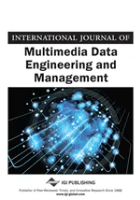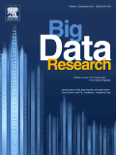
Foundations and Trends in Databases
Scope & Guideline
Advancing Knowledge in Database Research
Introduction
Aims and Scopes
- Foundational Theories in Databases:
The journal emphasizes the theoretical underpinnings of database systems, exploring algorithms, data structures, and models that form the basis of database technology. - Practical Applications and Case Studies:
It includes studies that showcase real-world applications of database systems, highlighting implementations in various domains such as cloud computing, data-intensive applications, and data management. - Emerging Technologies and Innovations:
The journal is dedicated to exploring new technologies and methods in database systems, including advancements in query optimization, data storage techniques, and the integration of machine learning. - Interdisciplinary Approaches to Data Management:
It encourages research that intersects with other fields, such as natural language processing, privacy, and blockchain, reflecting the growing importance of interdisciplinary approaches in data management. - Visualization and User Interfaces in Data Systems:
The journal also addresses the human-computer interaction aspect of databases, focusing on visualization techniques and user interfaces that enhance data accessibility and usability.
Trending and Emerging
- Learned Query Optimization:
The emergence of learned query optimizers indicates a trend towards leveraging machine learning techniques to enhance query performance, reflecting a significant shift in database optimization strategies. - Data Visualization and Recommendation Systems:
Research on visualization recommendation systems is gaining momentum, emphasizing the importance of effective data representation and user interaction in data management. - Distributed Data Management and Blockchain:
The integration of consensus mechanisms and blockchain technologies in data management showcases an increasing focus on distributed systems, highlighting the need for secure and efficient data handling. - Natural Language Interfaces:
The development of natural language interfaces for databases is an emerging area, aimed at making data systems more accessible and user-friendly, particularly for non-technical users. - Privacy and Security in Databases:
There is a growing emphasis on privacy concerns, particularly differential privacy, reflecting the increasing importance of data protection in an era of heightened awareness regarding data security.
Declining or Waning
- Traditional Relational Database Management:
There has been a noticeable decline in papers focused exclusively on traditional relational database management systems, as the field moves towards more complex and varied data management solutions. - Static Data Models:
Static data modeling approaches are becoming less prevalent, with a shift towards dynamic and flexible models that can accommodate the growing diversity of data types and structures. - Basic Database Query Techniques:
Research centered on basic query techniques appears to be waning, as newer methodologies like learned query optimizers and machine learning-based approaches gain traction.
Similar Journals

International Journal of Multimedia Data Engineering & Management
Empowering Researchers in the Digital Data LandscapeInternational Journal of Multimedia Data Engineering & Management, published by IGI Global, is a pivotal platform for the dissemination of knowledge in the fields of multimedia data engineering, information management, and technology-driven methodologies. With a keen emphasis on exploring innovative approaches to data management, this journal engages researchers, professionals, and students interested in the rapidly evolving digital landscape. Although currently not designated as Open Access, the journal is accessible through institutional subscriptions, fostering rigorous academic dialogue and collaboration. The ISSN for this esteemed publication is 1947-8534 (E-ISSN: 1947-8542), ensuring its global reach and recognition within the scholarly community. By bridging theoretical perspectives with practical applications, the International Journal of Multimedia Data Engineering & Management supports ongoing advancements and drives impactful research in multimedia technologies.

Journal of Cloud Computing-Advances Systems and Applications
Pioneering Research in Cloud TechnologiesThe Journal of Cloud Computing - Advances Systems and Applications, published by Springer, serves as a premier platform for disseminating cutting-edge research in the fields of cloud computing, computer networks, and software technologies. With an impressive impact factor and ranked in the top quartile for Computer Networks and Communications and Software categories in 2023, this open access journal has gained significant recognition within the academic community since its establishment in 2012. The journal not only provides valuable insights into innovative applications and advancements in cloud technologies but also supports collaboration among scholars, practitioners, and industry leaders. Operating from the vibrant hub of New York City, it boasts a robust international readership, ensuring that the latest findings reach a diverse audience. Authors and researchers are encouraged to engage with this vital resource, which is dedicated to exploring the transformative potential of cloud computing across multiple disciplines.

Frontiers in Big Data
Championing Open Access for Groundbreaking ResearchFrontiers in Big Data, published by Frontiers Media SA in Switzerland, is a leading open access journal that has established itself as a vital resource for scholars and practitioners in the expanding realms of artificial intelligence, computer science, and information systems since its inception in 2018. With an impressive impact factor reflected in its Q2 rankings across multiple categories, including Artificial Intelligence, Computer Science (Miscellaneous), and Information Systems, this journal serves as a pivotal platform for disseminating groundbreaking research and promoting interdisciplinary collaboration. The journal's commitment to open access ensures that high-quality research is readily accessible to a global audience, fostering the exchange of innovative ideas and advancements in big data technologies. By creating an inclusive space for diverse perspectives, Frontiers in Big Data aims to bridge the gap between theoretical research and practical application, making it an essential read for anyone invested in the future of data science.

Big Data Research
Empowering innovation through data.Big Data Research, published by Elsevier, is a leading academic journal dedicated to the exploration and advancement of Big Data methodologies and technologies. With an ISSN of 2214-5796, and a commendable impact reflected in its Scopus rankings—ranking Q2 in Computer Science Applications and Q1 in Information Systems—this journal offers a prominent platform for researchers and practitioners to share innovative findings in the realm of data science, analytics, and management. Since its inception in 2014, Big Data Research has fostered a multidisciplinary approach, addressing cutting-edge topics crucial for both academic inquiry and real-world applications. The journal's objectives include advancing the understanding of data-intensive systems, promoting essential methodologies for big data analytics, and enhancing data-driven decision-making processes across various industries. As an open access journal, Big Data Research is committed to disseminating knowledge widely, allowing researchers, professionals, and students to stay at the forefront of developments in this fast-evolving field. Its influence in the academic community is further underscored by a strong commitment to quality and relevance, making it an essential resource for anyone interested in the transformative power of big data.

International Journal of Web Services Research
Empowering Knowledge Sharing in Web ServicesThe International Journal of Web Services Research, published by IGI Global, is a premier forum dedicated to advancing research and innovation in the field of web services. With an ISSN of 1545-7362 and an E-ISSN of 1546-5004, this journal has steadily contributed to the discourse on computer networks, information systems, and software development since its inception in 2004. Based in the United States, the journal publishes high-quality research articles that delve into cutting-edge web service technologies and methodologies, making it an invaluable resource for researchers, professionals, and students alike. Although categorized in the Q4 quartile in 2023 across several classifications, its growing impact and relevance are reflected in its ongoing engagement with contemporary issues in the web services landscape. As an academic platform, it aims to provide a comprehensive understanding of the dynamics of web services and their implications for future technological advancements. Researchers are encouraged to contribute their findings to foster knowledge sharing and collaboration within this vital domain.

International Journal of Grid and Utility Computing
Advancing the Future of Computing SolutionsInternational Journal of Grid and Utility Computing is a pioneering publication dedicated to advancing research in the domains of grid computing, utility computing, and their applications across various sectors. Initiated in 2005 and continuing through 2024, the journal is published by INDERSCIENCE ENTERPRISES LTD, a respected publisher known for its commitment to facilitating scholarly communication. With an ISSN of 1741-847X and an E-ISSN of 1741-8488, this journal, based in the United Kingdom, serves a global audience of researchers, professionals, and students. Although classified in the Q4 category across Applied Mathematics, Computer Science Applications, and Management Information Systems, the journal aims to bridge theoretical research with practical implementation, fostering interdisciplinary collaborations. Researchers looking for a platform to disseminate their work on grid technology and its utility in modern computing environments will find this journal an invaluable resource. The focus on innovative computing methodologies places it at the forefront of emerging trends and technology applications, despite the need for increased visibility in competitive metrics like Scopus rankings.

IEEE Open Journal of the Computer Society
Fostering Collaboration in a Digital EraIEEE Open Journal of the Computer Society is an esteemed open-access journal dedicated to advancing the field of computer science. Published by IEEE-INST ELECTRICAL ELECTRONICS ENGINEERS INC since 2020, this journal promotes innovative research and scholarly communication in a rapidly evolving technological landscape. With a notable Q1 ranking in the Computer Science (miscellaneous) category and a high Scopus percentile of 92, it serves as a premier platform for disseminating cutting-edge findings and interdisciplinary studies. The journal is committed to facilitating unrestricted access to valuable insights, fostering collaboration among researchers, professionals, and students alike. As it continues to publish impactful articles through 2024 and beyond, the IEEE Open Journal of the Computer Society remains a vital resource for anyone interested in the latest trends and developments in computer science.

International Journal of Intelligent Computing and Cybernetics
Transforming Ideas into Intelligent Cybernetic ApplicationsThe International Journal of Intelligent Computing and Cybernetics, published by EMERALD GROUP PUBLISHING LTD, serves as a pivotal platform for advancing the field of intelligent computing and cybernetics since its inception in 2008. With a strong focus on innovative research and interdisciplinary collaboration, this journal is positioned in the prestigious Q2 category of Computer Science, ranking at an impressive 42nd out of 232 in Scopus, reflecting an 82nd percentile performance. The journal provides a venue for scholars and practitioners to disseminate their findings on cutting-edge technologies and methodologies that bridge the realms of computing, artificial intelligence, and cybersecurity. Although currently not an open-access journal, it widely circulates valuable insights essential for driving forward academic discourse and practical applications in the rapidly evolving digital landscape. Researchers, professionals, and students are encouraged to engage with this journal to stay at the forefront of advancements in intelligent systems and cybernetic solutions.

Journal of Web Engineering
Connecting Scholars in the Evolving Digital LandscapeThe Journal of Web Engineering, published by RIVER PUBLISHERS, serves as a pivotal platform for researchers, professionals, and students interested in the expanding fields of web technologies and engineering. Since its inception in 2008, this journal has dedicated itself to advancing knowledge and promoting innovative practices in Computer Networks and Communications, Information Systems, and Software Engineering. With an impressive convergence of research up to 2024, its Q3 quartile ranking in both Computer Networks and Communications and Information Systems reflects the journal's commitment to the dissemination of high-quality, impactful research. Although it operates as a traditional access journal, it allows for vital contributions to be shared widely among a diverse readership. The Journal of Web Engineering's rankings in Scopus, including a percentile placement of 28th in Computer Networks and Communications, demonstrate its relevance and growing significance in the academic landscape. As the digital world continuously evolves, this journal remains a crucial resource for exploring the latest advancements and theoretical reflections within the realm of web engineering.

SIGMOD RECORD
Bridging Theory and Practice in ComputingSIGMOD RECORD, published by the Association for Computing Machinery, is a distinguished journal in the fields of Information Systems and Software. With an ISSN of 0163-5808 and an E-ISSN of 1943-5835, this journal has been a vital resource for scholars since its inception in 1969, providing in-depth research and developments from 1973 to 1978 and resuming from 1981 to the present day. Recognized for its significant contributions, it currently holds a Q2 quartile ranking in both information systems and software categories as of 2023. Although not an open access journal, SIGMOD RECORD is committed to advancing knowledge and innovation, presenting a platform for both emerging and seasoned researchers to share their insights. Positioned as a pivotal resource in the computing landscape, it attracts a diverse audience eager to explore the latest trends and methodologies in data management and software engineering.